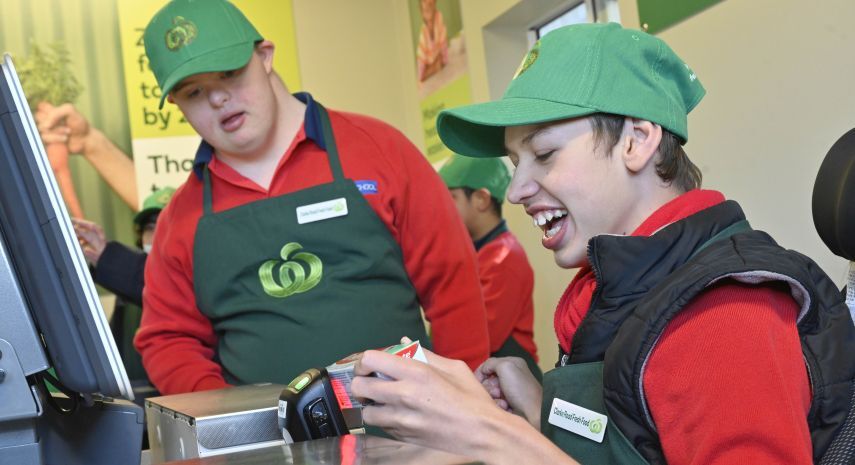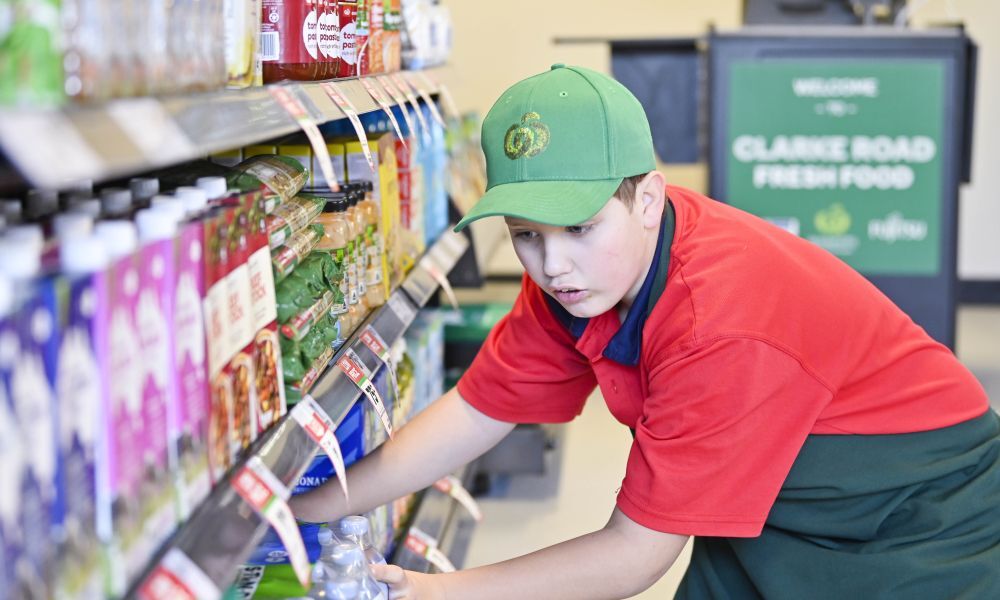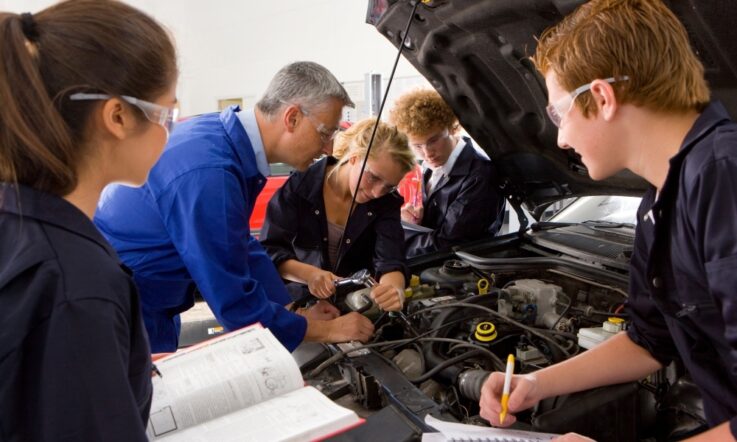Preparing students for life beyond school can be difficult to simulate in a classroom environment. At Clarke Road School in Hornsby, New South Wales, they have brought the outside world into the school context through their involvement in the ‘Mini Woolies’ program, which has seen a small-scale Woolworths supermarket built on the school grounds.
Clarke Road School is a school for specific purposes (SSP), with 65 students from K-12 with intellectual and other disabilities. Their involvement in the program began recently, and aims to give students with learning and developmental delays and specific needs a safe and inclusive environment to practise life skills.
‘Real-world experiences where students have opportunities to build functional capacity equips them with skills which can then be generalised and used in their local community,’ Principal Rebecca Saunders tells Teacher.
At Clarke Road School, all school staff are involved with the program through weekly visits to the Mini Woolies store, which are incorporated into the students’ learning programs. The mini supermarket is designed to replicate the experience of a full-size store, with baskets, supermarket shelves, fully-operational check outs and Woolworths uniforms.
The school also has a chicken pen, and an outdoor fruit and vegetable patch for students to learn about harvesting fresh fruit and vegetables which can be used in their weekly cooking program.
Learning from other schools
As part of the program, principals at participating schools attend monthly meetings. ‘The meetings provide an opportunity for principals to build their understanding and capacity of how their Mini Woolies can be used, as schools are at different stages of implementation. Woolworths staff provide support and advice to schools by linking schools together that are at similar stages of implementation,’ explains Saunders.
‘For example, at the last meeting one school presented on how they were using Mini Woolies to practise some of the requirements for a retail TAFE course.’

[Image: Adam Hollingworth]
Practising real-world skills
A student’s experience in the store is tailored depending on what is most relevant for their learning. These experiences are linked to real-world skills students can use at school and beyond. ‘For some it will involve practising their communication skills by requesting an item, matching items to a visual checklist, or practising their sorting and categorising skills.’
For example, visual checklists are used by some students to match a photograph or picture to an item they are looking for. Or, for an activity they are completing, it provides students with visual instructions for what to do next. ‘This supports students’ literacy skills in sequencing (e.g. first/then/next) as well as following instructions,’ Saunders explains.
‘Sorting skills that students would be practising include: sorting items that need to go into the fridge or items that need to go on the shelf, and items that are fruit or items that are vegetables. A categorising task may include grouping items together – for example, putting items together that you would use for cleaning.’
For other students, use of the mini supermarket might be more focused on learning new technology and money skills, such as serving their peers, exchanging money for goods and giving change.
Over time, student activities will be expanded to include the ordering of ingredients they need from the store, to then collect and use in their class cooking programs. Some students will also be responsible for the collection and storage of ingredients when the school receives deliveries.
Students are also able to use the chicken coop and vegetable garden at the school to practise work skills such as caring for animals (in this case, chickens), ‘by collecting their eggs and feeding them, as well as garden maintenance skills such as weeding, watering and using garden tools functionally.’
Building student confidence
‘Some students have already shown great confidence in using the scanners and in developing their skills in following a routine when collecting items from the store,’ says Saunders.
‘Over time, we anticipate that students will build their confidence in shopping at the supermarket and that this would be generalised when they are shopping in the community with their parents and carers.
How do you support students in practising real-world skills at school? With colleagues, discuss how you can incorporate activities into your lesson plans to simulate real-world scenarios.



